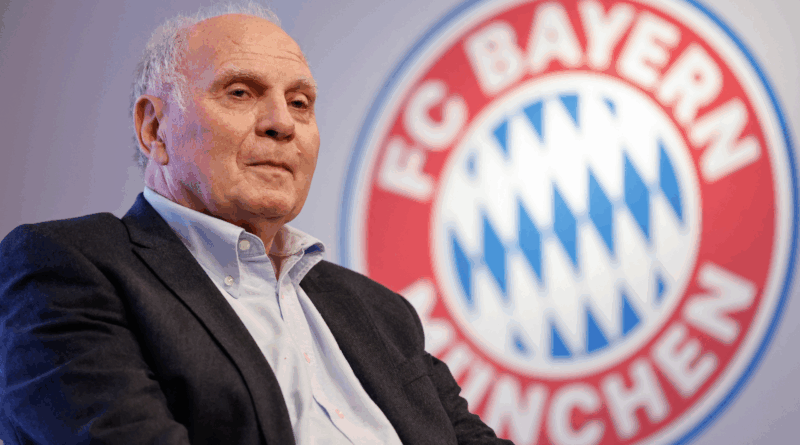Bayern Munich Chief Slams Transfer Fee Madness and Warns Bundesliga
Bayern Munich transfer fees have become a lightning rod for criticism as Uli Hoeness, the club’s honorary president, launched a scathing attack on the recent trends in the football transfer market. In an era defined by astronomical spending, especially by Premier League clubs, Hoeness voiced his growing concern about the sustainability of such a system and advised the Bundesliga to steer clear of external financial influences.
Bayern Munich Transfer Fees: Hoeness Decries Market Excess
Bayern Munich transfer fees are no longer in the spotlight alone; the summer transfer window saw Premier League clubs shatter spending records, with expenditures topping €3.5 billion. Uli Hoeness, never shy to share his opinion, described this as “completely crazy,” warning that the ever-inflating figures are creating a financial bubble that is bound to burst sooner or later.
Hoeness’s remarks underscore his belief that the pace and scale of transfer inflation threaten the integrity and financial health of football. He cautioned that, while Bayern Munich remains committed to responsible financial management, other clubs and leagues should consider the long-term consequences of reckless spending. According to Hoeness, “This can’t end well,” as clubs risk spiraling into unsustainable debt and instability.
Premier League Spending and the Global Transfer Arms Race
Hoeness’s concerns are not limited to the Bundesliga. The Premier League’s summer transfer binge, bolstered by lucrative broadcasting deals and intense competition, has set a new global standard for transfer fees. This, in turn, has forced clubs across Europe, including Bayern Munich, to pay inflated sums in order to stay competitive—fueling a cycle that Hoeness views as unsustainable.
The Bavarian chief’s comments come amid a backdrop of increasing involvement from foreign investors, especially American hedge funds and Saudi financiers, in European football. Hoeness warned that welcoming such capital could compromise the identity and stability of traditional leagues, particularly the Bundesliga.
Bundesliga Urged to Resist Foreign Investment Pressures
Bayern Munich transfer fees are carefully monitored due to the club’s traditional business model, which prioritizes member ownership and prudent financial planning. Hoeness insisted that the Bundesliga must preserve these values and resist the growing allure of foreign investment. “Bundesliga should remain independent and not fall for the quick fix of external money,” he stated. He emphasized that fan culture and community ownership are essential to the league’s unique character.
Financial Fair Play and the Future of Transfers
Hoeness’s statements revive the debate around UEFA’s Financial Fair Play regulations, designed to prevent reckless spending and ensure a level playing field. However, critics argue that these rules are not enforced strictly enough, allowing wealthier clubs to outspend rivals and distort competition. Bayern Munich transfer fees, while substantial, are still overshadowed by those seen in the Premier League and other big-spending leagues.
“Football should be about sporting merit, not financial muscle,” Hoeness declared, calling for stricter regulation and better financial oversight across Europe.
What This Means for Bayern Munich and German Football
For Bayern Munich, transfer fees will remain a hot topic as the club balances ambition on the pitch and sustainability off it. Hoeness’s warning is a rallying cry for German football to protect its heritage, resist short-term temptations, and set an example for the broader football world. His message is clear: the Bundesliga must chart its own course, focused on responsible growth and integrity.
Fans seeking more updates and expert analysis can visit for more news.
Opinion: Preserving the Soul of Football
Hoeness’s concerns should resonate with everyone who loves the game. While marquee signings and record-breaking transfers grab headlines, the relentless pursuit of financial gain risks eroding the very soul of football. The Bundesliga’s commitment to sustainable business models and community-driven ownership stands as a valuable counterpoint to the excesses seen elsewhere. In the long run, prioritizing stability over spectacle might be the key to preserving football’s enduring appeal.
Your global gateway to nonstop football coverage:
News Goal
Share this content:

